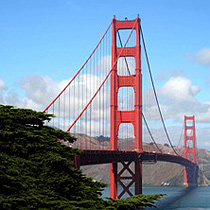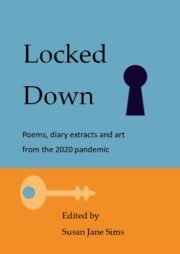Perhaps one reason why the question ‘what is poetry?’ is difficult to answer is because poetry is an art of the negative, of avoidance. The Tao Te Ching says what is rigid and inflexible is a companion of death; what is flexible is a companion of life. I’d guess there would be general agreement that poetry is an art on the side of life. So poetry must eschew the inflexible; we must avoid the posture. And that’s very hard.
In judging a competition one comes across the Wordsworth-posture, the Ginsberg-posture, alongside those of Betjeman, Hughes, Plath, Duffy . . . But we also posture like mad in ‘real life’. We may take up the pose of grief, melancholy, love, liberalism, environmentalism . . . The mark of the absence of posturing is an instability, an openness, an awareness of time (which posture tries to deny) and this is something I look for in a good poem. If a poem strikes an attitude my attention diminishes; when the poem unearths a pulsing, shifting, live relationship between the self and the other, then I am captivated, recognising something that is both commonly human and uniquely personal.
Of the poems that made it through to the final stages of the judging process, I was haunted by the precise yet enigmatic bewilderment expressed in ‘Heatwave near Wisbech’. I was strongly moved by the delicately mythic freighting developed in ‘Crossing with the ferryman’. I enjoyed the bold metaphorical range and compass of ‘Toadsong’ and the precisely fluent descriptions of a beautiful, charged landscape in ‘In Place’.
The final three poems offer an unintentional lesson on the sheer variety of poetry being written now. The prose poem can often be a good way to elude the posturing traps of more conventional verse writing. Although third-placed poem ‘So No Longer Will the Words it Speaks Inhibit’ is in part about the act of making poetry, it also fizzes with the energies of the market stalls and voices it evokes. Its pushy imperatives are inspiring rather than bullying and serve to elate the reader, urging us to engage with the thrills, the unpredictability of the world about us. In second place, ‘Epic Fail’ achieves something of the same effect with less passion but more knowing irony. It manages to propel the reader into an enjoyment of the occasion in St James’ Park while we simultaneously over-hear the narrator reflect, order and re-order his perceptions in ways which put us in touch with a living mind, engaged in the same struggle as the tourists who are more simplistically intent on “capturing the moment” with their time-freezing cameras.
The poem, ‘Zoom’, is perhaps the most conventional of the top three. Simon Armitage’s poem of the same name travels out through “city, nation, hemisphere, universe”, but the winning poem moves inward, exploring both the past and the narrator’s self through memory. I enjoyed the shifting perspectives and variety of voices in the photographic titles and the parenthetical reflections, but what takes this relatively conventional subject to a profound level is the use of the photographic zoom image. Here it is refreshingly and explicitly performed on a modern touchpad device and becomes a process of self-analysis which opens gradually into the mysteries and anxieties of identity itself.
Martyn Crucefix
August 2013







